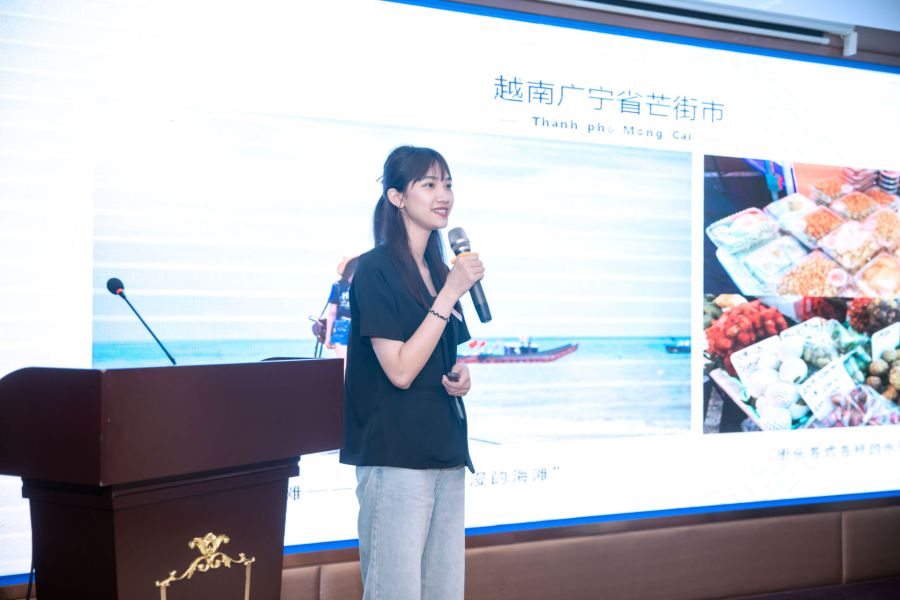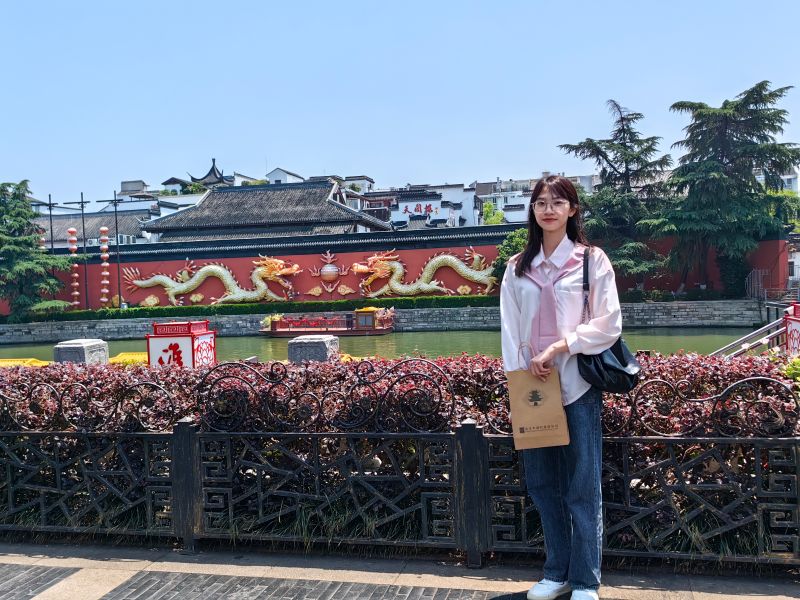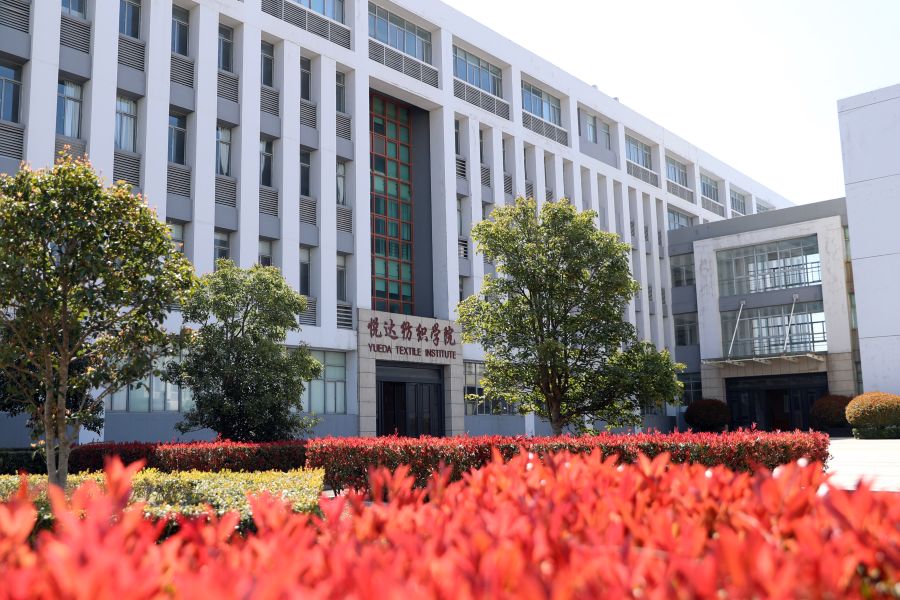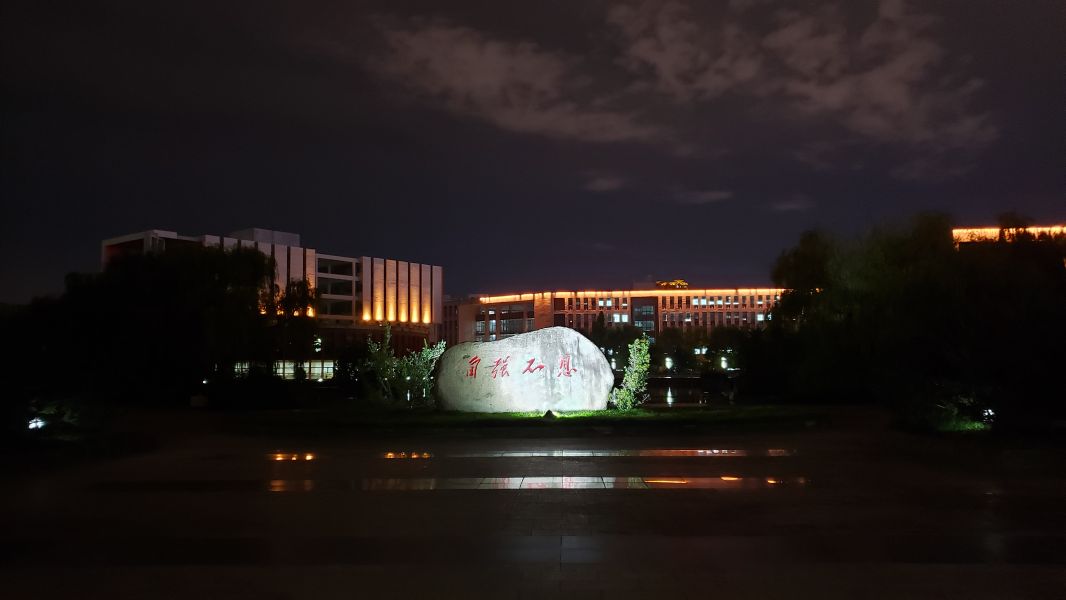The Other Side of the Bridge Is China
Date:2024-04-24 Author:STUDY IN CHINA
[Vietnam] Nguyen Thi Thu Giang, Yancheng Polytechnic College
At a very young age, I knew that the other side of the bridge is China.
I was born in Mong Cai City, Vietnam, across the river from Dongxing, South China’s Guangxi Zhuang Autonomous Region, China. The river is called Beilun River. Across the river is the China-Vietnam Friendship Bridge, which connects the friendship between the two peoples and serves a symbol and epitome of the development of the relationship of the two countries. Meanwhile, the bridge is also an important channel for international trade and cross-border tourism. With this friendship bridge, commercial activities and cultural exchanges between the Chinese and Vietnamese have become more and more frequent. So, when I was a child, I met a lot of Chinese, who said that China is very big, and there are five or six hundred cities like Dongxing, and many cities are very prosperous. This has always made me curious and yearning for the other side of the bridge, wanting to see what China is really like. I have also visited the China-Vietnam Friendship Bridge many times, and each time it has strengthened my determination to go to China.

In 2020, I successfully applied for the study opportunity in China. This year, I finally came to China. Although I have rehearsed countless times in my dreams, I was still excited when I packed my luggage and actually crossed the China-Vietnam Friendship Bridge. When the dream became a reality, the joy of that moment was not enough for me to express in thousands of words. I think this feeling is something that only those who have actually experienced it can understand.

From Dongxing to Shanghai, from Shanghai to Yancheng, I kept recording with my camera along the way, and I didn’t want to miss any of the scenery. When I came to Yancheng Polytechnic College in Jiangsu Province, I felt the family-like affection, the enthusiasm and care of the teachers and Chinese students. Through face-to-face Chinese learning, participating in a variety of cultural activities, and socializing with Chinese friends, I experienced a culture that is different from my country. From traditional architecture to ceremonial customs, Chinese houses and festivals have their own characteristics. In Yancheng, I went to Zhuxi Ancient Town and Water Street, consisting of pavilions, small bridges and flowing water with Chinese characteristics, tasted Chinese tea and delicate and delicious pastries, and also wore beautiful Hanfu and took beautiful photos. In European Floral Street, I saw a different Yancheng which is full of buildings with different national characteristics, and I felt the internationalization and modernization of Yancheng. I climbed the Yancheng TV Tower, saw the bright night of the city, and felt the development and vitality of the city. In the Yellow Sea Forest Park, I discovered the ecological beauty of the city and saw the verdant and vibrant Yancheng. Yancheng is a city of many faces, and every face impresses me.

Yancheng is a warm city because there are a group of warm people living here. By participating in various activities held by the Yancheng municipal government and schools, I have had a better understanding of the “big family” of China and feel the warmth and unity of the people in this big family. Not long ago, during the Dragon Boat Festival, the teachers and our international students made zongzi together to celebrate the festival, which made us feel the warmth of home. I also gradually discovered that there are similarities between Chinese and Vietnamese cultures. For example, we all celebrate the Spring Festival and the Dragon Boat Festival, we all have spring rolls and zongzi, and we also like to drink green tea. This similarity makes my life in Yancheng more relatable.

I have been learning Chinese for more than two years, and I love the Chinese sentence “culture is a bridge between the hearts, bringing unity and understanding.” I believe that culture is not just a traditional value, but a way to communicate and understand each other. I am very fortunate that I was born in Mong Cai and was able to know at a very early age that China is on the other side of the bridge. I am also very proud that I can speak Chinese, learn and understand Chinese culture, meet Chinese friends, communicate with them and share the beauty. In my heart, the Chinese language has gradually become the bridge of friendship between China and Vietnam, connecting Vietnam on one side and China on the other.






 京公网安备 11010802035729号
京公网安备 11010802035729号